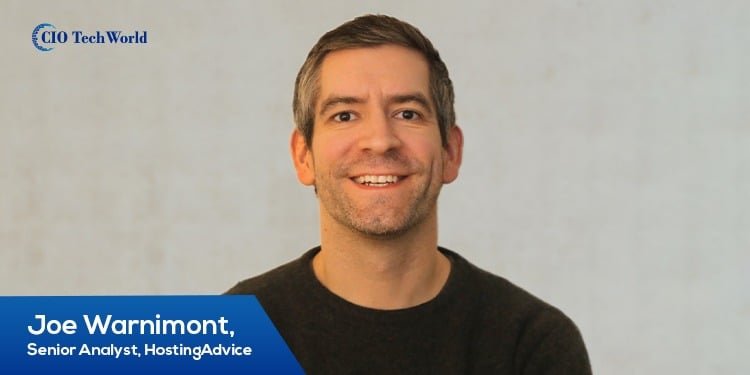Imagine yourself — or don’t imagine if it’s already your job — as a hiring manager. You scroll through hundreds of resumes from potential employees. Five years ago, you may have struggled to find software developers. Today, however, the landscape is different. Software developers are easier to come by, but the battle for the best cybersecurity professionals is heating up.
I’ve witnessed this shift in digital hiring needs, and so have 500 senior IT decision-makers in the US. I know this because HostingAdvice conducted a survey asking these decision-makers about everything from tech hiring priorities to current struggles. And the results are astounding, challenging everything you may know about tech hiring.
The Hardest to Find Role: Cybersecurity Professionals
I look at the numbers and laugh, because the results would have seemed impossible just five or six years ago. The HostingAdvice survey, after asking IT leaders about their most pressing challenges in staffing, showed a whopping 41 percent of leaders find it hard to hire and retain cybersecurity professionals.
That launches cybersecurity professionals past what I’d usually consider the most difficult people to find: AI specialists and software devs. And the entire hierarchy has changed, too. No longer are companies fighting over their next JavaScript guru. Instead, they need specially trained digital defenders to battle off increasingly complicated cyberthreats.
Here’s how often the survey reported each role as hard to fill/retain cybersecurity professionals:
| Role | Percentage of respondents finding it hard to hire/retain |
| Cybersecurity professionals | 41% |
| Machine learning and AI pros | 37% |
| HostingOps engineers and architects | 35% |
| Data infrastructure professionals | 24% |
| Software and web developers | 8% |
That’s a massive reversal in what I saw just a few years ago. Everyone seemed to tell those in school to “learn to code” or “become a software developer.” Lots of people took the advice because now it’s not that hard for companies to fill those roles. Only 8 percent of IT decision-makers saw software and web developers as difficult to hire and retain. They’re abundant now, whereas there’s a dire need for more specialized roles in AI and cybersecurity.
Is Institutional Knowledge Still Valued in the New Tech World?
Let’s say you’re renovating an old, historical building in your town. That renovation definitely requires architects with a strong grasp of modern design and architectural principles. But you’ll also want people who know why certain design and structural decisions were made twenty, thirty, or even one hundred years ago.
It’s the same thing as institutional knowledge in tech. We’re talking about an industry obsessed with new trends and the latest technologies. Sometimes, institutional knowledge, those voices from the past, get overshadowed.
Luckily, the survey from HostingAdvice states that 87 percent of IT decision-makers see institutional knowledge as a critical part of hiring decisions.
Here are the complete results with more nuance:
- 61% of respondents: Say that institutional knowledge is essential and needs to be part of the hiring process alongside new expertise.
- 26% of respondents: Say it’s “critical” to keep staff who hold a deep understanding of institutional and organizational knowledge.
- 13% of respondents: See institutional knowledge as either a hindrance or as becoming less important.
They arrived at 87 percent by adding together those first two percentages. And that’s fair, because both groups want to keep around, or hire, those with institutional knowledge. It scares me a bit to think about the 13 percent who say institutional knowledge is a hindrance, but at least that’s a low number right now. Overall, I believe organizations will need to continually balance their teams for the best effect. For instance, you’ll always want cybersecurity professionals who can work on AI-driven threat protection, but you’ll also require people who know the existing frameworks of an organization.
How Remote Work Comes into the Equation (Hint: It Serves as an Equalizer)
The survey reports that 57 percent of IT decision-makers claim that remote work has boosted their access to quality talent. This presents an equalizer of sorts.
Here are the implications of remote work in tech hiring:
- Industry variations: Keep in mind that not every sector of the tech world says remote work has made hiring easier. For instance, 36 percent of leaders in the financial services sector claimed remote work made finding the right hires more difficult. It’s assumed that’s because of security concerns and regulatory requirements.
- Increased retention thanks to flexibility: The best tech professionals command high salaries, and they often want improved workplace flexibility. Offering “work-from-home” jobs allows organizations to bring in premium talent as well as a good salary.
- Fewer geographic barriers: Companies don’t have to fight over local talent anymore. They can reach out to people across the country or across the globe.
It appears we mainly have the lack of geographic barriers to thank for how remote work helps hiring in tech. It all depends on the sector, but the survey shows particularly beneficial elements for cybersecurity hiring.
H-1B Visas Add More Uncertainty to IT Hiring
Because of shifts in the political climate — primarily how the US may handle people on visas — IT leaders have leaned toward a conservative approach when hiring those with H-1B visas:
- practices% of respondents say they’ve implemented no changes in their hiring practices — they’re going with a “wait-and-see” strategy
- 26% of respondents say they’re hiring even more people on H-1B visas
- 21% of respondents state they’re hiring fewer people with an H-1B visa
Those waiting and seeing, and those hiring fewer people with visas, are growing a little hesitant, since they don’t want to mess with the cost and hassle involved with hiring someone who may have challenges with their visa later on. On the other hand, some companies want to “stock up” on the best international talent while it’s possible.
Why Have Priorities in Finding Digital Talent Changed?
CTO and President of HostingAdvice, Ryan Frankel, says it best: “With AI, tools are now better able to handle junior-level coding tasks. Also, cybersecurity threats are much more complex. This has caused a big change in hiring priorities over the past year. Hiring managers are increasingly looking for specialized trades like cybersecurity professionals.”
I see it as a broader evolution of how organizations view the needs of their digital workforce. You can build software, sure, but that’s not really enough anymore. You’ll need specialists, not only to create the software but to optimize it, protect it, and integrate with AI tools.
And unfortunately, supply isn’t meeting demand right now for that specialized talent. The good news is that it gives many people the opportunity to specialize and stand out in their jobs.
But for now, there are many challenges contributing to this shortage in specialized talent:
- Skill specificity: It’s tricky to automate specialized roles. You can streamline general dev work with AI, but that’s not the case just yet for the specialists.
- Higher stakes: Companies require proven experts in areas like AI and cybersecurity. Now. Not in a few months after training.
- Technology complexity: This is particularly true in cybersecurity and AI. The problems are becoming more and more difficult to understand.
Luckily, this leaves open plenty of flexibility for hiring managers in the future. They can reassess hiring practices and figure out ways to bring in the specialists while also monitoring legacy systems.
Where Do You Go From Here?
For IT leaders, I think it’s essential to rethink compensation strategies and invest in internal development. I also like the idea of hybrid approaches where you blend veteran workers and modern-era workers who can handle the specialization. Your company will thrive if you recognize this hiring shift as not only an HR issue but an industry demand that could deliver the utmost competitive advantage.
Explore more interesting articles:
The Busy Executive’s Guide to Reading Penetration Testing Reports and Spotting Red Flags
John T Marcante: 3 Key Questions for Boards Amid Global IT Outages and Cyber Disruptions

I am an experienced professional writer with over a decade of expertise in covering WordPress, web hosting, and eCommerce platforms.









